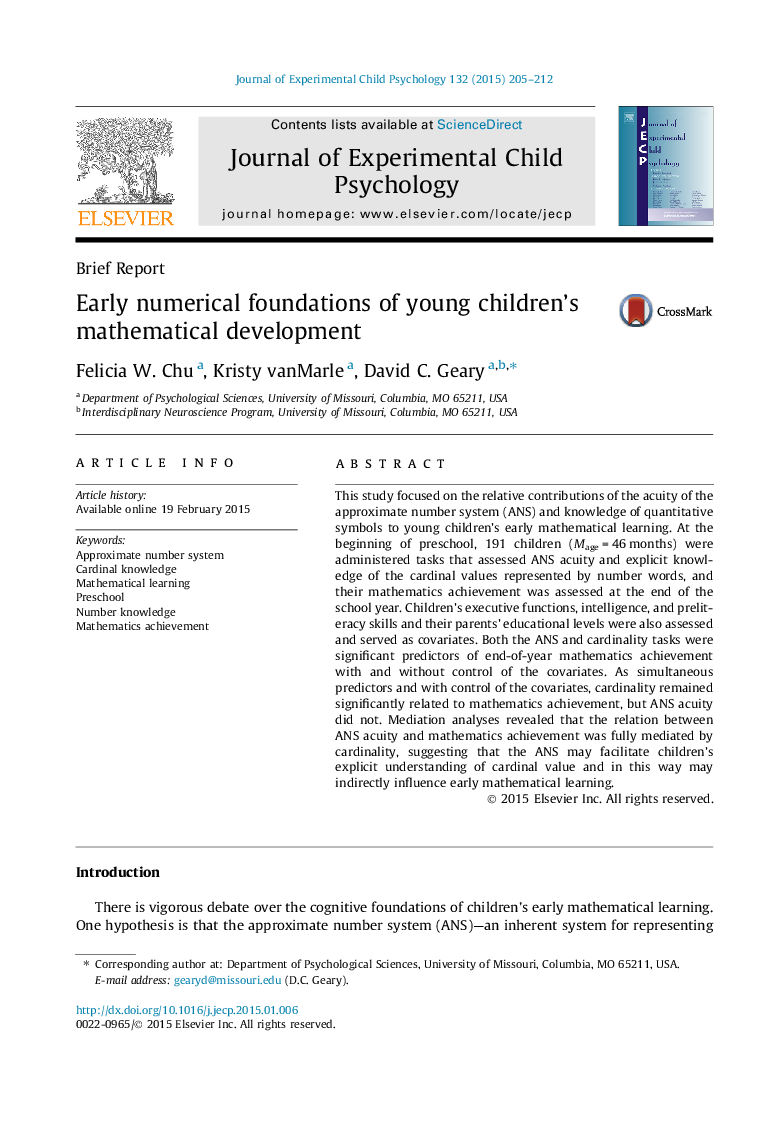| Article ID | Journal | Published Year | Pages | File Type |
|---|---|---|---|---|
| 917985 | Journal of Experimental Child Psychology | 2015 | 8 Pages |
•Acuity of the approximate number system (ANS) predicts preschooler’s mathematics achievement.•Knowledge of the cardinal value of number words predicts preschooler’s mathematics achievement.•Knowledge of cardinal value is relatively more important than the ANS.•Cardinal value mediated the relation between the ANS and mathematics achievement.
This study focused on the relative contributions of the acuity of the approximate number system (ANS) and knowledge of quantitative symbols to young children’s early mathematical learning. At the beginning of preschool, 191 children (Mage = 46 months) were administered tasks that assessed ANS acuity and explicit knowledge of the cardinal values represented by number words, and their mathematics achievement was assessed at the end of the school year. Children’s executive functions, intelligence, and preliteracy skills and their parents’ educational levels were also assessed and served as covariates. Both the ANS and cardinality tasks were significant predictors of end-of-year mathematics achievement with and without control of the covariates. As simultaneous predictors and with control of the covariates, cardinality remained significantly related to mathematics achievement, but ANS acuity did not. Mediation analyses revealed that the relation between ANS acuity and mathematics achievement was fully mediated by cardinality, suggesting that the ANS may facilitate children’s explicit understanding of cardinal value and in this way may indirectly influence early mathematical learning.
